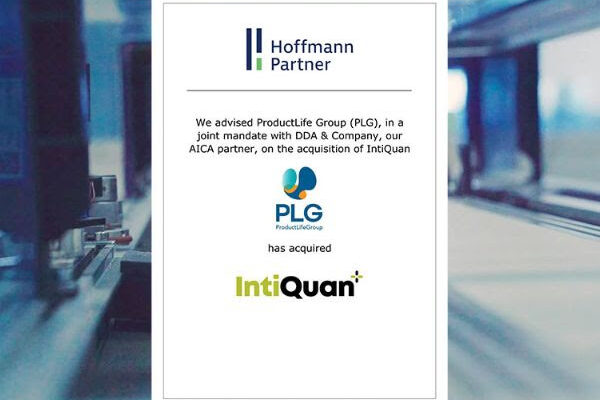Negotiating A Family Owned Business’ Sale

Genesis Investment Consultants Ltd
Closely held Businesses DNA
Closely held family businesses are characterized with and possess certain different ingredients which separate them from publicly held corporations. These characteristics often influence processes involved capital oriented transactions, far more evidently, in the sale of the business by family owners.
Several options are available to owners of family businesses when planning and implementing succession plans, one of which is to explore a merger or a sale opportunity with either one of their rivals or with a larger strategic or financial buyer. Unlike structured, professionally managed transactions carried out by publicly traded corporations, leadership of family owned businesses, often tend to rely in this process on their own family members and related staff, starting from the initial decision throughout the entire negotiations up to the closing of a sale transaction.
Failing to appreciate that the sale of the business is in many of family owned situations, a once in a lifetime decision which rarely been experienced before, may jeopardize the expected result, in some instances, may as well adversely affect family members cohesion and harmony.
Seller’s Sensitiveness & Expectations
Buyers entering into an acquisition or merger transaction with owners of closely held corporations, must bear in mind, and consider certain personal elements affiliated with the process. To increase the prospects of successfully closing a deal with owners of family businesses, buyers should apply different negotiation strategies and tactics. Among other factors to be considered which likely to increase successful deal closure, are:
- Sensitiveness to seller’s business culture, adopting and developing a personal dialogue approach with family sellers and understanding the dynamic of ownership variables among family members,
- Deep understanding and knowledge of the business for sale, the industry, and markets it operates in and its positioning in these markets,
- Attempting to provide an acquisition offer, which demonstrates unique and differentiated value proposition and build-in alignment of interest with seller’s features, enabling mutually cultivating potential near-term gains.
Family business owners have a high regard for their own business. They view their businesses as a pioneering operation which they have worked hard to build and develop over a couple of decades and so reaching a decision to realize their long life-time investment, often involves an emotional element. As a result, buyer’s identity and culture, and its foregoing plans post acquisition, play in many cases a much important role than just maximizing selling price tag.
The Negotiation Process
A family business seller’s perspective often involves certain amount of cognitive dissonance regarding the quality of the business which, as a result, may be coupled with an emotional attachment that clouds a rational negotiation process. It is therefore important for prospective buyers to present and stress empirical comparable data when addressing valuation methodologies and related issues, particularly when valuations are being adjusted based on due diligence findings.
Furthermore, confronting due diligence findings with the sellers, should preferably use a soft language, avoiding insinuations – derived from these DD facts and evidences – in the direction of mismanaging or not keeping commonly acceptable accounting standards or accounting controls. It is not un-common for tax planning issues to become an important factor when dealing with a closely held company, as individual shareholders may be more focused on their net proceeds from the sale transaction rather than the proposed equity value.
Financial Reporting & Corporate Governance
Family owned companies have unique characteristics that influence their accounting and corporate governance practices to be different from publicly traded corporations. Among other, these include the concentrated ownership in the hands of a controlling family and its decision making process to pursue their goals, the interest of the family members in the long-term survival of the company, and the importance of emotional and other non-financial considerations such as reputation and public relations of the family in the eyes of their closed community and the way it appears in the media.
Additionally, owners of family businesses, often manage and finance their different owned businesses under one legal entity, which creates difficulties in properly analyzing and normalizing results of operations in each of the relevant business lines accounted under the same legal entity.
It is not uncommon for family corporations to only fulfill the minimal accounting and financial reporting requirements enforced by tax authorities, avoiding for example, annual budgeting, periodical appropriate financial statements, accounting controls, forecasting tools and proper corporate governance, the absence of which hamper a buyer’s ability to initially establish a solid valuation of the business for sale and ultimately absorb and integrate the acquired business with his own.
Engaging Advisors
It is likely that smaller family businesses do not have an in-house M&A experience, resource or capability, hence will conclude that an objective third party industry expert with proven experience is critical and need to be engaged.
For shareholders in a closely held business, the sale of their business is one of the most important business decisions they have probably ever taken. Some family members think they can negotiate a deal themselves, however, selling their own business is a far different transaction compared with numerous previous commercial transactions they have taken before, a transaction that requires deep knowledge, vast experience and proven successful track-record. The gap in price expectation between buyer and seller, is an unavoidable issue. It arises particularly with closely held businesses, and small family owned companies, who tend to value their business much higher than buyers, largely due to the existence of emotional ties. Delivering valuations for closely held businesses can be tricky, as this is one area where fair-market-value is really in the eye of the beholder. M&A advisors can mitigate and be helpful in this context by providing a buffer between the transaction principals allowing necessary negotiating gap for eventually reaching mid-ground compromises and maintaining smooth relationship with one another.
Professional experienced M&A advisors are also likely to suggest different approaches when apparently facing deadlocked situations which otherwise might cause negotiation termination and a killed deal.
< Blog



